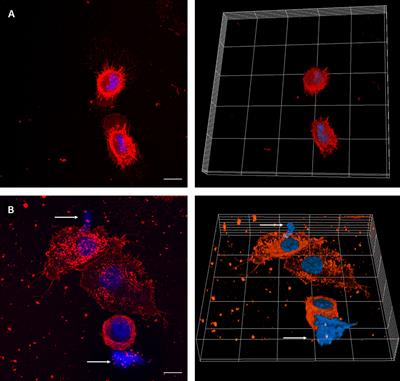ORIGINAL RESEARCH
Published on 26 Apr 2021
Salmonella Typhimurium Triggers Extracellular Traps Release in Murine Macrophages

doi 10.3389/fcimb.2021.639768
- 5,480 views
- 21 citations
7,479
Total downloads
23k
Total views and downloads
ORIGINAL RESEARCH
Published on 26 Apr 2021

ORIGINAL RESEARCH
Published on 23 Mar 2021

ORIGINAL RESEARCH
Published on 18 Mar 2021

MINI REVIEW
Published on 03 Feb 2021

ORIGINAL RESEARCH
Published on 17 Dec 2020
